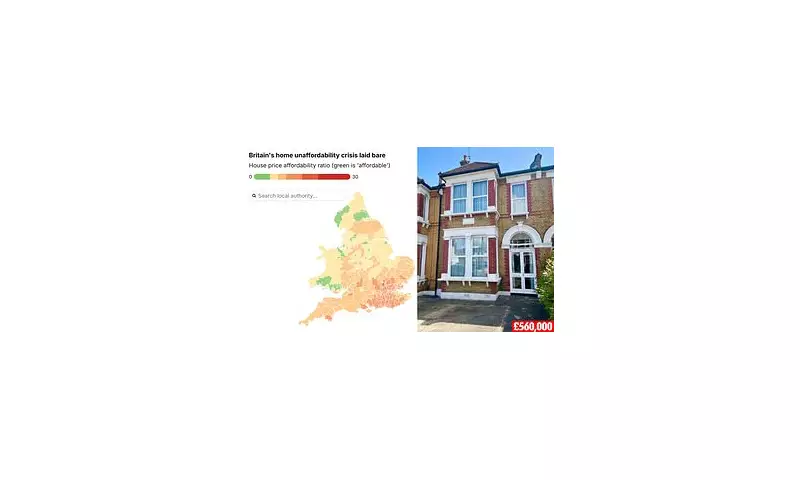
The dream of homeownership is turning into an impossible fantasy for millions across Britain, as a new interactive map lays bare the staggering gap between local wages and soaring property prices.
The data paints a bleak picture of a nation divided, where in some of the most desirable areas, average house prices are more than twenty times higher than the average local salary. This isn't just a London problem; the affordability crisis has seeped into every corner of the country, creating generational barriers to getting on the property ladder.
The Worst Affordability Blackspots
Unsurprisingly, the capital dominates the list of least affordable places. Exclusive boroughs like Kensington and Chelsea, and Westminster see property values skyrocket to astronomical multiples of what a typical resident earns. The map allows users to zoom in on their own postcode, offering a sobering reality check for aspiring buyers.
Beyond the capital, the picturesque landscapes of the Cotswolds and other rural beauty spots are also plagued by unaffordability. These areas have become preserves for second-home owners and wealthy commuters, pricing out the local communities that sustain them.
A Nationwide Crisis
While the South East shows the most extreme disparities, the issue is profoundly national. Coastal towns, university cities, and even some northern regions are experiencing a severe squeeze. The map serves as a powerful visual tool, highlighting that the link between local work and local home ownership has been broken for a vast portion of the population.
The crisis is fuelled by a perfect storm of stagnant wage growth, decades of underbuilding, and high demand, creating a market that is fundamentally broken for first-time buyers and low-to-middle income families.
What Does the Future Hold?
This deep-rooted problem poses serious questions about the long-term social and economic future of the UK. Experts warn of a 'generation rent' with little hope of building property wealth, widening the inequality gap. The map is more than just data; it's a stark warning that the cornerstone of the British dream is crumbling for too many.





